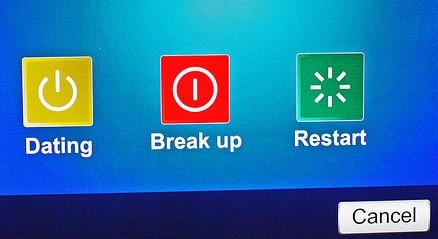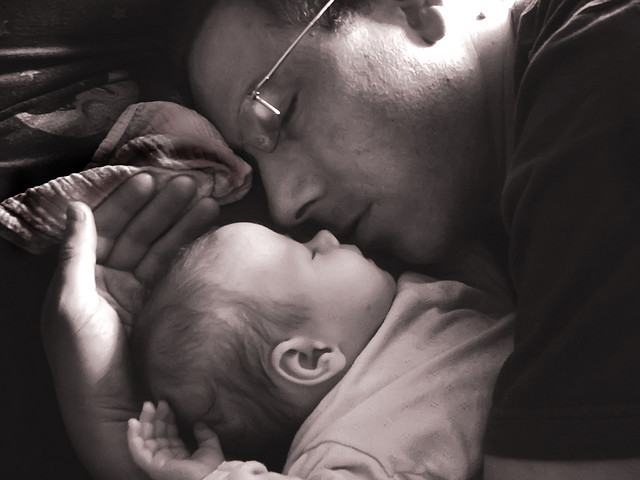‘There’s a theory that women who say they “Don’t want kids” don’t really mean it. It’s like the “I love being single” line, a way of making themselves feel better, and come across less needy until the right man comes along’ — message received on OkCupid
When we enter the dating scene, we try to make ourselves as attractive as possible to our prospective mates. Just as not all physical attributes are equally likely to bring the boys/girls to your yard, some personality traits and life goals are more desirable than others on the dating meat-market. In practice this means people are not just adding a few inches to their height (and length) while dropping a few more from their girth, they are also more likely to misrepresent what they are looking for in a partner, and in life.

In exactly the same way as we learn what we should look like, we infer which traits are more desirable through cultural norms, the archetypal roles modelled by our peers, in popular culture, and the feedback we receive through our interactions. These roles come with associated social scripts about what we should want for ourselves and what others want from us. The problem with this approach is that these scripts may bear little resemblance to reality.
Examples include describing one person as ‘relationship material’ but another as a ‘blow-and-go’. Or when people say ‘older women are better in bed’, that ‘young guys ought to play the field’, that ‘men want sex more than women’ and, my personal favourite, that ‘all women want children eventually; it’s only a matter of time’.
On the dating scene, these scripts play out in the way we select our prospective partners. Perhaps men have overwhelmed you when you are only interested in casual sex, but you can hear crickets chirping when you start to want more. If you’re a woman in your thirties, you might find men your own age steering clear. After all, our scripts say that ‘all women secretly want babies’, and women in their thirties are ‘running out of time’. This means guys commencing a relationship with a woman who is in that window might worry about feeling pressured to settle down right away—it’s easier to date younger women, who still have ‘plenty of time’. These same women may have no shortage of offers from younger men who are seeking their rite-of-passage ‘cougar’ experience.
Dating sites should help us get around these assumptions. Many allow you to state exactly what you are looking for and let you search for appropriate matches who have the same long and short-term goals. No need to waste anyone’s time chatting and dating if one of you is looking for a family of eight while the other wants a between-meals friend-with-benefits.
Unfortunately, it rarely works that way. Say you are in your thirties and looking to meet someone to start a family within the next few years. Ticking yes to ‘looking for a long-term relationship’ and ‘I want children’ can come across as the first-date equivalent of telling someone you see them as a potential egg or sperm donor and are looking to invest in a white picket-fence with them.
Perhaps you are not looking for anything serious but would like some fun, some company, and some sexual release. Can you happily tick ‘seeking casual encounter’ without coming across as wanting something fleshy when you tire of your battery operated boyfriend or fleshlight?
I am the first to admit doing this when checking the box that represented what I really wanted on the dating scene: casual sex. I wanted sex, yes, but not just any sex. I wanted quality encounters, hopefully more than one, and I worried that by being so up front I would end up as some guy’s one-off wank sock when he was lonely on a Friday night. Instead, I checked ‘short-term dating’ and ‘long-term dating’ in the hope I would attract ‘higher quality’ suitors.
I made an assumption based on cultural archetypes about the partners I might draw by ticking that box. Not only did I likely miss many opportunities to get exactly what I wanted, I probably wasted a lot of people’s time—people looking for the big ‘R’ when I wasn’t.
However, where I was completely honest and indicated that I did not want children, prospective suitors didn’t believe me. ‘I wouldn’t mind having shorter kids,’ one person wrote (I was also honest about my height of 5 foot 1). I recall being furious, and telling him so. Was there some secret setting where I had inadvertently advertised myself as a midget broodmare? He went on to tell me that women only say they don’t want children to make themselves feel better, in case it never happens. How dare he make those kinds of assumptions about me? He was accusing me of lying, and about something so fundamental. Yet hadn’t I made similar assumptions based on those same social scripts?
Another ‘tip’ I was given repeatedly, including by current lovers, was to play down my sexuality. If I wanted others to view me as someone worthy of dating, and not be thrown on the porn pile, I shouldn’t jump into bed right away, or even talk about sex. But I study sex. I write about sex. It’s kind of difficult not to mention that. ‘Oh you’re studying? What do you study?’ ‘…’ ‘Oh you’re a writer? What do you write about?’ ‘…’
I am also a highly sexual person. By not being up front about this part of me before I settled down the first time, I ended up marrying someone sexually mismatched. I had no desire to make that mistake again, and so when meeting new people, I made sex and sexual compatibility a priority.
If I listened to this advice and played the demure Madonna, instead of being myself, I could have ended up with someone with low libido, who was as repressed as my ex-husband, who needed to repress me, or who felt threatened by my sexuality when I eventually revealed it.
Playing to these archetypal scripts might find me a mate, but that partner was likely to have a very different understanding and expectation of who I am and what I want from life.
Imagine if that guy hadn’t accused me of secretly wanting children. What if we had hooked up and fallen in love, with him quietly believing I would eventually reveal my true wish to have a family, only to discover a house, two cars, and three cats later, that I had been completely honest?
The other side of this is people who put off making a firm commitment, who say they ‘might want kids one day’, or ‘might want to get married’, but fail to mention it’s not something they want with their current partner, or at least, not within their fertility window. In heterosexual relationships, this scenario is common. Society teaches men to avoid commitment, and so women assume this avoidance is normal, and will change when their partner eventually ‘grows up’. This is one particularly damaging set of scripts, because if we hide our true intentions long enough, the consequences for both partners is irreversible.
Our scripts discourage men and women from being honest about what they really want, and when they are they aren’t believed. Then instead of examining what really goes on in the dating phase of our relationships, our archetypes describe women as naïve or selfish, believing they can ‘have it all’, and men as ‘kidults’ who refuse to ‘grow up’ and ‘take on the proper responsibility of parenthood’, ignoring their right to choose as much as any woman’s. Sexual incompatibility meanwhile, is something we are just supposed to suck up, another sacrifice we make to the script of long-term monogamy.
Having these conversations early on can make dating seem utilitarian or scare off potential partners, but what is the alternative? If we play to archetypes around sexual permissiveness, chances are we will end up miserable, with a partner who is sexually incompatible, while playing to those about commitment and children can mean we end up struggling to find a mate willing to parent (or not) and potentially miss the fertility boat altogether.
Differing sexual needs, timing and fertility mean some relationships are utilitarian. That doesn’t mean they don’t work. Surely, there is merit in partnering with someone who has the same aspirations, the same drives and values, and building a life together around those? However, to do so we need to examine the impact our social scripts have on how we represent ourselves, and the assumptions we make about those we meet. By blindly following our social scripts when dating, we ultimately risk being very cruel, robbing one another of aspirations and life choices. Unless we make room for open and honest communication early on, we can only end up with a host of dissatisfied people, constantly seeking one thing, but finding another.




